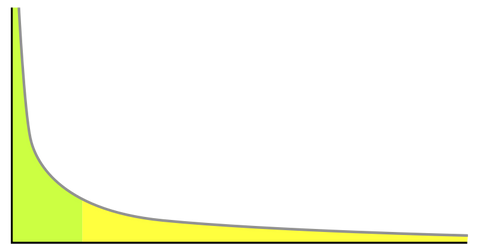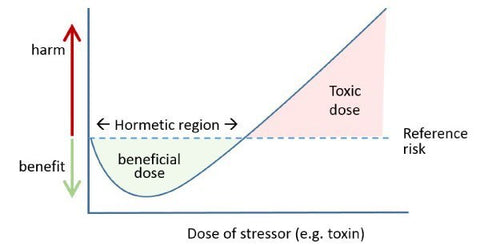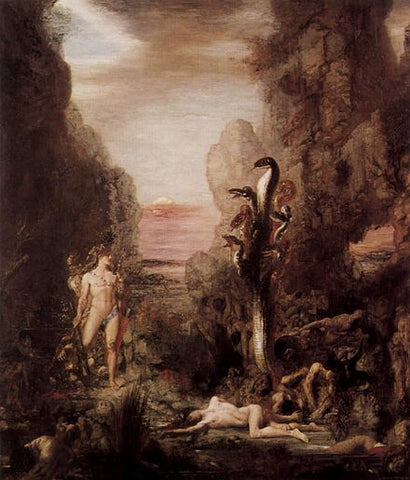
As I write these lines, a patient is dying of COVID-19 every three minutes in Madrid. If you believe the models, we are just at the beginning of a pandemic that will have cost many lives worldwide in the next few months. For many, this is a shock. Nobody could have foreseen something like this! The truth is, it was foreseen. Already on 26 January, risk experts sounded the alarm
.When the financial markets crashed in 2008, there was one man who became filthy rich in one fell swoop. Libyan civil war refugee Nassim Nikolas Taleb is not only a successful stockbroker and professor of statistics in New York. Taleb is also a passionate flâneur and essayist. In "The Black Swan" as early as 2007, he warned of the real possibility of a pandemic
.But no one listened to him. And because no one really understood his books anyway - even though they were on the bestseller lists for months - Taleb decided one day, from now on, to write only highly complex articles for the academic audience.
A "black swan" is an extremely unlikely event with enormous implications. The discovery of penicillin, the success of Google and 9/11 were black swans because no one could have predicted them. Black swans have no antecedents in the reality we know. The Corona pandemic had numerous precursors, it was only a matter of time.

A "black swan" is a metaphor for a highly improbable event with enormous consequences. Our world is shaped by "black swans" but we usually overlook this because we explain away "black swans" in retrospect with our "penchant for inventing stories" ("narrative distortion"). -
Driven by the "will to power", the "coarser organ sees much apparent sameness" (Nietzsche). Thus we keep the frightening incalculability of reality at bay by replicating - just like the virus - again and again only what is familiar and known. The Corona crisis was predictable, so it is a "white swan".
"For to him that hath shall be given, that he may have abundance; but from him that hath not, even that he hath shall be taken away." (Matt 25:29)
A fundamental distinction that Taleb makes in his thinking is between "Mediokristan" and "Extremistan". In Mediokristan, everything is more or less equal. The tallest and the shortest person in the world probably differ by little more than a metre. Most people are somewhere in the middle between these two extremes, the result being - in mathematical terms - a classic bell curve, normal or Gaussian distribution.

Gaussian bell curve on a German ten-mark note from the 1990s
Things are different in "Extremistan". It is quite possible for a single person to earn more than a million others put together. A million first-time authors sell an average of five hundred books. A first-time author, on the other hand, sells more than five hundred million books. In Extremistan, we are not interested in the averages of a random distribution but in its "tails", its extreme values.

Unlike a normal distribution (mediocristan), in an 80/20 or Pareto distribution (Extremistan) we are interested in the "tails", i.e. the ends of the curve. Note that this graph approaches "infinity" in two ways. It is interesting that there are no "lids" in such a distribution - the potential is unlimited. This makes the "Sacred Game" (life with "Skin in the Game") substantially different from trivial parlour games with predetermined rules and possibilities.
Suppose your grandmother was first cooled to minus eighty degrees for twelve hours and then heated to one hundred degrees for twelve hours. On average, your grandmother would be exposed to a temperature of twenty degrees. - You can drive against a wall one hundred times at a speed of 1 km/h and nothing will happen to you. But you can only drive against a wall once at a speed of 100 km/h.
.Getting ten thousand pebbles thrown at your head one after the other may be annoying. Having an appropriately large boulder thrown at your head once is fatal in its effect. Anything that departs from existence in contact with extreme events, i.e. strong deviations from the mean, is fragile by its definition, it does not "like" disorder.

Anything that responds to disorder with disintegration is fragile. The classic example of fragility is the teacup. Before the shattering - the Corona crisis, etc. - the teacup contains relatively little information and relatively much meaning. In the state of fragmentation or disorder, the teacup contains relatively much information and relatively little meaning. We can currently observe the same in the social networks. Relatively much meaningless (noise/information) mixes with relatively little meaningful (signal/meaning).
Besides fragile - and robust - systems, there is another category. Anything that responds to disorder and extreme deviation from the norm with gain, learning or growth is antifragile.Our immune system is antifragile. A living or complex system responds to stress with adaptation and growth when the necessary conditions are in place. In order for a muscle - or a relationship, for example - to become stronger after a stress than before, they must be able to recover from the effort phase (training). Paracelsus already knew: "The dose makes the poison".

As you can see from this illustration, moderate stress stimuli encourage the system to go beyond itself and respond to the challenge by strengthening. This is called "overcompensation." The classic example is muscle training. If the stress stimulus is too strong or the repetition interval too short, injury or trauma will occur instead of the growth effect. Accordingly, it might be a good idea to systematically train (or save) our health in "peacetime" in order to be prepared in case of "emergency"
.Taleb illustrates the three categories Fragile/Robust/Antifragile with metaphorical images from Greek mythology. King Damocles is fragile because the "sword of Damocles" always lurks above him. He can do whatever he wants, one day his hour strikes - also known as the "turkey problem". The popular "phoenix from the ashes", on the other hand, is robust. Throw it into the fire and it will rise again - "weeds never die!". Antifragile, on the other hand, is the Hydra. The hydra benefits from damage. Cut off one of its heads, it will regrow two.
Let's be clear about who the natural winners of randomness are: Researchers, artists and entrepreneurs. Someone is looking for a drug for high blood pressure and discovers Viagra. Someone repairs a satellite dish and discovers cosmic background radiation. Someone is looking for a sea route to India and comes across America! - Maybe it's not a good idea at all to strive for "health" as a return to "normality" but much more as an invitation to adventure, as a research trip to the sources of one's very own life force. - What makes me really alive? What fills me with the fire of enthusiasm? It could be that in following this trail, "health" will emerge as a side effect. -

Gustave Moreau: Heracles and the Lernaean Hydra, 1876
Everything that grows exponentially comes from Extremistan, including the pathogen of COVID-19, SARS-COV2.How do you kill a Hydra? Let's ask Hercules! You have to cut off its head and immediately burn out its neck with fire. You must not give the monster time to regenerate. No one - not even Hercules - can do that alone. In the fight against a Hydra we need rigorous determination and above all: merciless, no, superhuman speed!

1 comment
Superartikel!
Heisst, es geht nicht darum, die Hydra zu töten, Hydra in dem Fall das Bild für den Virus,, der sich ja auch verändert, sondern zu werden wie die Hydra. Ich hab mir das schon länger gedacht: Warum nicht alles nutzen was da verordnet wird, für eine eigenverantwortliche, höchst kreative Neubestimmung? Also wenn beispielsweise Mastercard seine Leute nur wieder zurück in die Büros holen will mit Chip/ Immunitätstausweis, dann ist es vielleicht an der Zeit, sich eine/n neue/n Beruf/ung zu finden.
Das Leben ist sowieso Risiko. Und dieser ewige Schrei nach Sicherheit und Bequemlichkeit ist sowieso nicht mehr adäquat angeischst dessen, was wir als Mescnhehit gerade innelrich und äußerlich zu wuppen haben, damit unsere Spezies und der Planet weiterleben und andere Spezies vielleicht wieder zurückkommen. Lauter kann ein Hallo wach! gar nicht sein, als diese Erzwungene Transformation. Die ich sehr begrüße.
Übrigens hast du bestimmt entdeckt, dass das afrikanische/ madegassische, offensichtich erfolgreiche Covid Organic auf Artemisia Annua basiert.
Und D forscht daran ja schon lange:
https://www.innovation-strukturwandel.de/de/7535.php
Auch, wenn das wieder das typisch kolonialistische Narrativ ist, das dann nach Afrika verschiffen zu wollen . Brauchen die Afrikaner ja offensichtlich nicht, weil sie es selber haben.